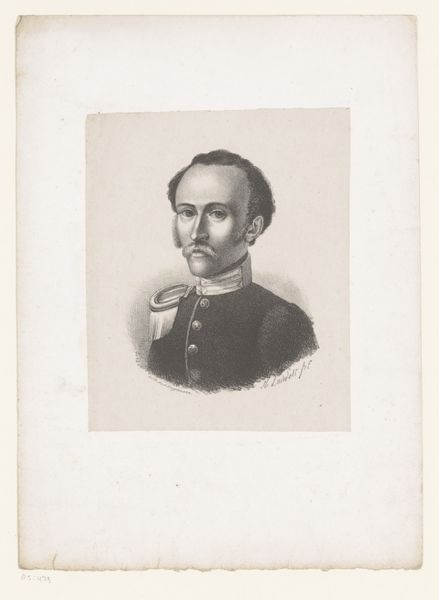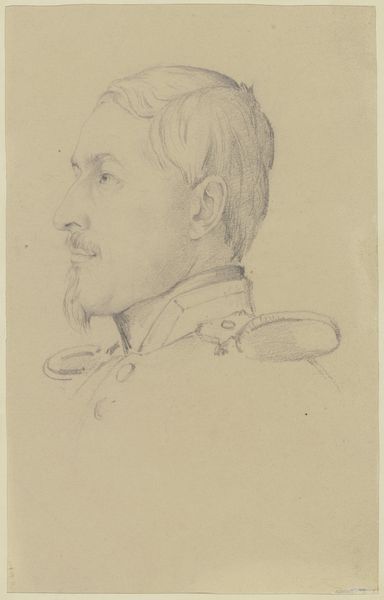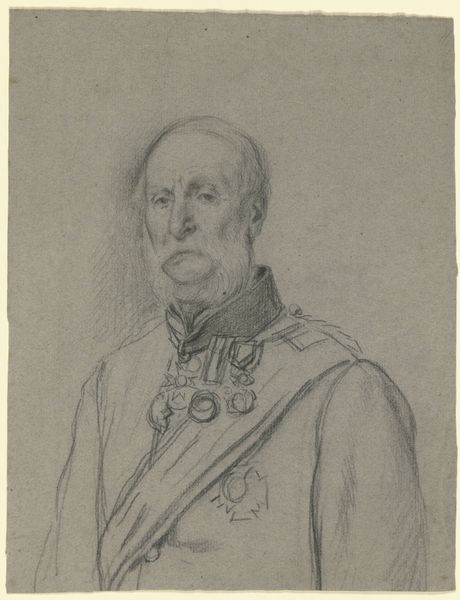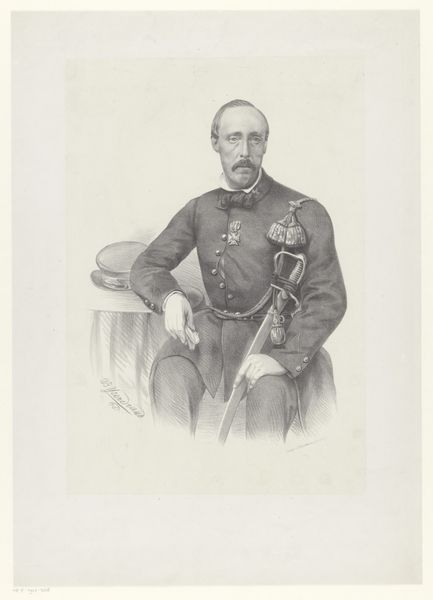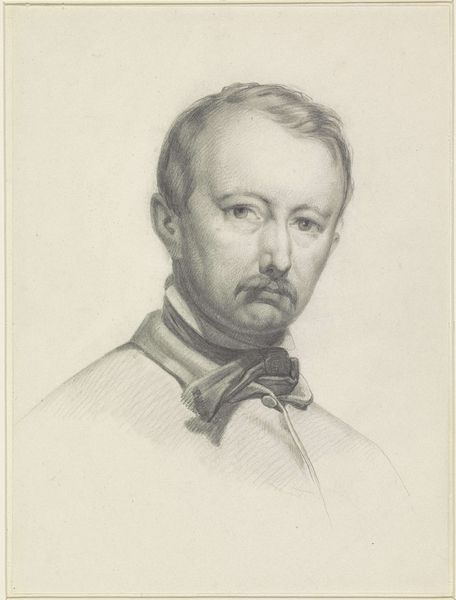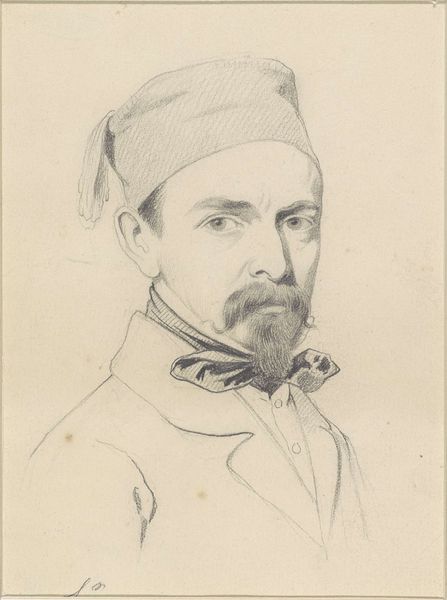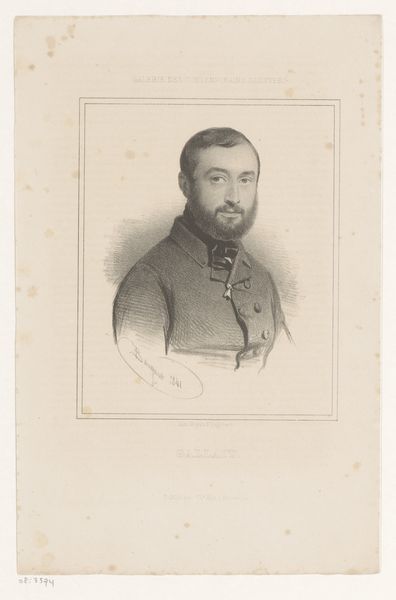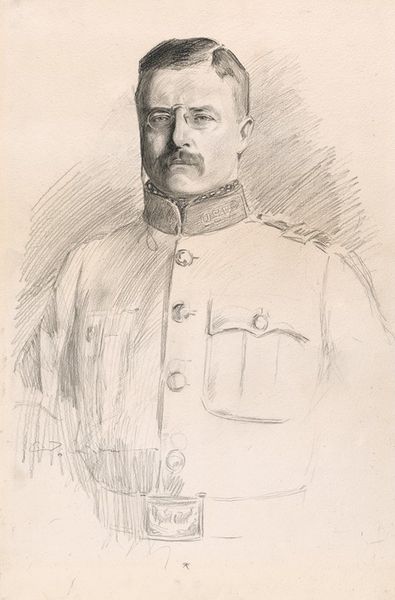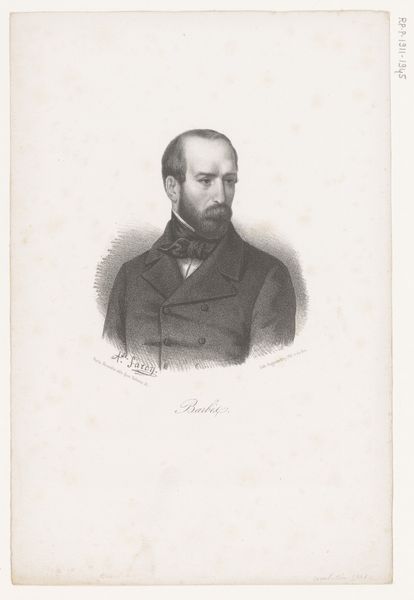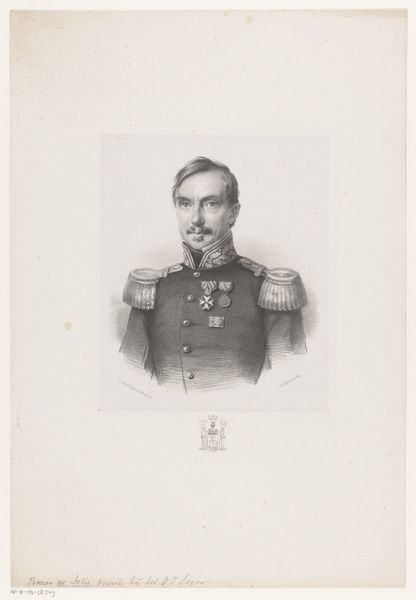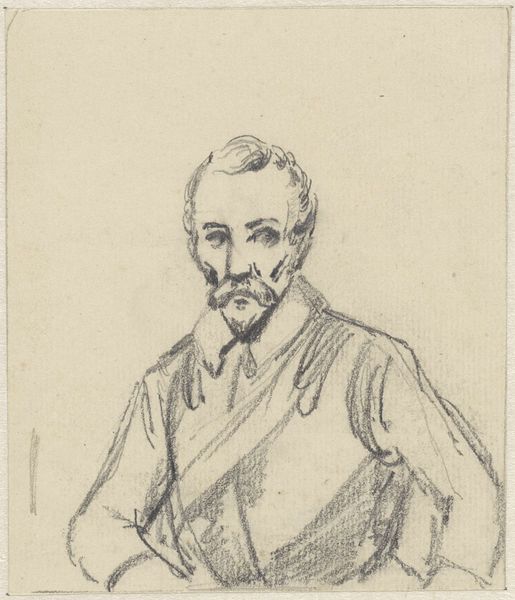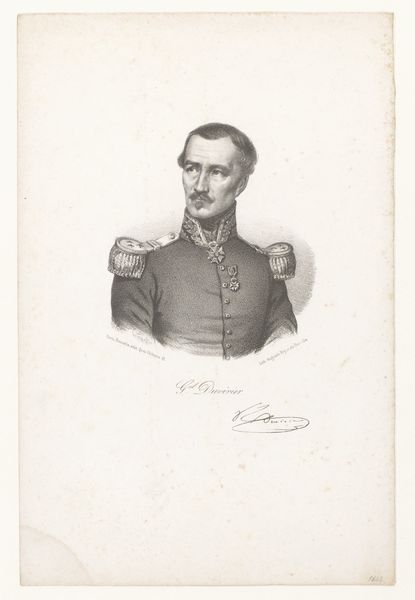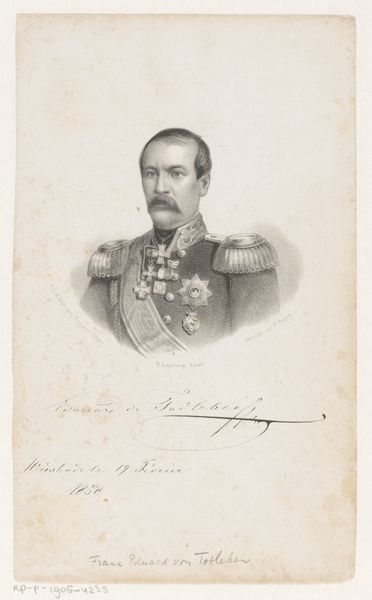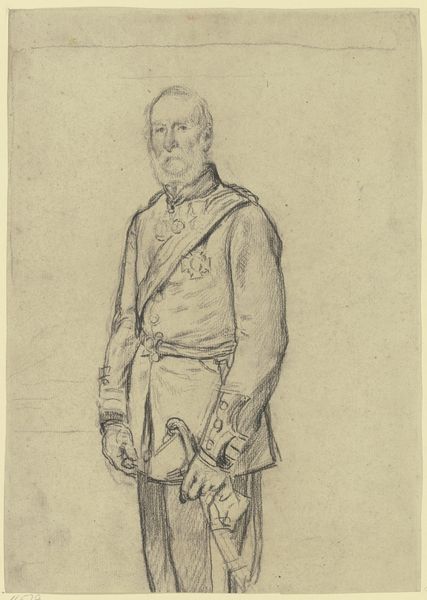
drawing, pencil
#
portrait
#
pencil drawn
#
drawing
#
toned paper
#
light pencil work
#
16_19th-century
#
pencil sketch
#
personal sketchbook
#
portrait reference
#
german
#
pencil drawing
#
pencil
#
sketchbook drawing
#
portrait drawing
#
pencil work
#
academic-art
#
realism
Copyright: Public Domain
Curator: I find myself immediately drawn into the eyes of this military portrait. The subject conveys an immense amount of reserved strength, doesn't he? Editor: Definitely. And looking at this work on toned paper at the Städel Museum, made with a light pencil work, my initial feeling is intimacy and perhaps vulnerability; a kind of access we usually don’t get with military figures. What do you read into the iconography? Curator: Military uniforms have historically been worn not just for identification but also for projecting authority. A symbol that suggests order, discipline, and national allegiance, almost invariably referencing military honor and duty, regardless of a soldier’s individual circumstances. Editor: Yes, but this one feels quite informal. And I see more than that: the method of the artist Otto Scholderer in sketching a man in uniform also points towards the significance of art schools in 19th-century Europe, offering military portraiture as an excellent subject of study due to its structured form and historical symbolism. Curator: A compelling observation, given that the very light and loose handling emphasizes humanism in the act of looking! It could easily be dismissed as a study; the precision lies primarily in his face, a face seemingly stripped bare, in spite of its proud moustache. Editor: Precisely! The emphasis shifts to the individual—away from institutional or state power. I am struck by the lack of flourish, in favor of direct, unadorned observation of line, technique, and tonal values achieved through layering of the pencil work. We understand the craft here. Curator: And even the visible corrections invite consideration. Consider what this face would mean to him: he might have looked into the very eyes of battles won and lives lost! Editor: Ultimately, it's this sketch's rough quality, this immediate presence, that brings him closer to us as an individual and allows us a glimpse into another man's soul in the time that's past. Curator: A powerful, quiet moment. Editor: I agree, and seeing its construction reveals a much more humane message to me.
Comments
No comments
Be the first to comment and join the conversation on the ultimate creative platform.
